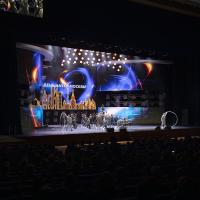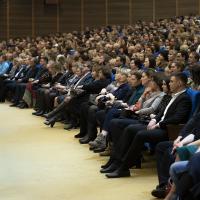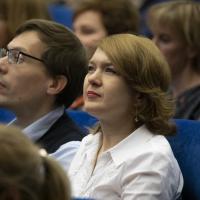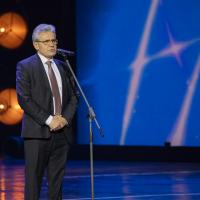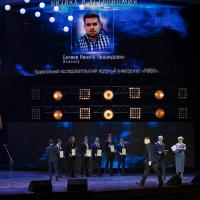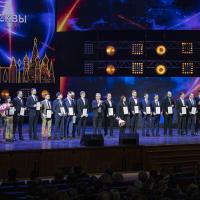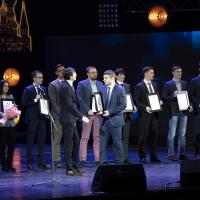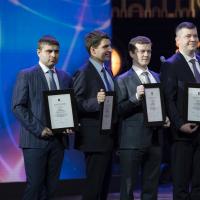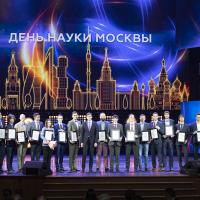On February 8, the State Kremlin Palace has hosted an award ceremony for young scientists who were able to achieve outstanding results in research and development of new technologies. The awards were presented by the Moscow Mayor Sergey Sobyanin, President of the Russian Academy of Sciences Alexander Sergeev, the rector of Lomonosov Moscow State University, academician Viktor Sadovnichy. 50 prizes of the Moscow Government were awarded, 77 people became laureates.
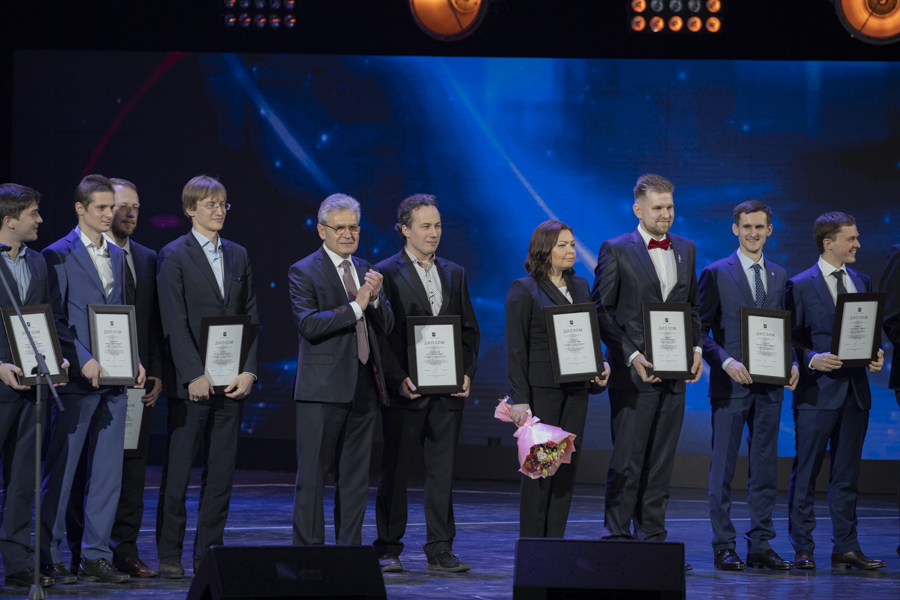
A postgraduate student of the Particle Physics Department INPhE MEPhI Nikita Belyaev was awarded in the research field "Physics and astronomy" for the cycle of works on the theme "Development of new methods to search for effects of CP violations in Higgs sector”:
- In simple terms, we are looking for manifestations of the so-called "new physics" - a group of phenomena that is beyond the Standard model of elementary particles (SM). In particular, we study the decays of the Higgs boson and look for certain correlations between the observed values, which analysis will make it possible to detect possible manifestations of new physics directly in the experiment. The aim of my study was to develop methods which can experimentally detect the effects of CP violations in the decays of the Higgs boson.
CP-violation is a non-invariance of the processes of elementary particles interaction with respect to the simultaneous replacement of the values of electric charges and the coordinates of all particles to the opposite one. Such effects have never been observed in the Higgs boson decay, and the detection of CP-violation in the Higgs sector would be the first experimental manifestation of the new physics and would be an important discovery. By themselves, violations from SM can be caused by various reasons, for example, the presence of an additional Higgs boson in the physical spectrum or the presence of Higgs boson’s properties which differ from those predicted in SM.
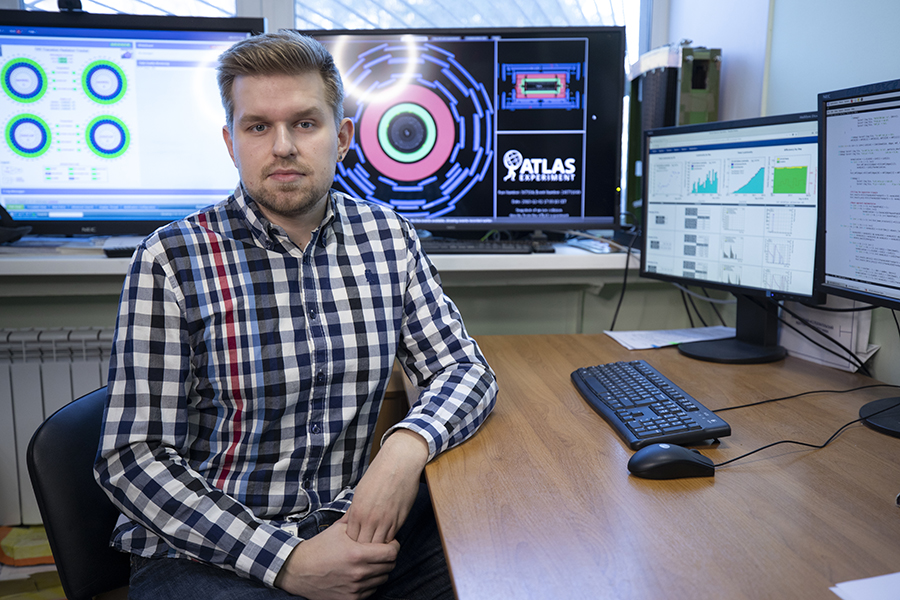
My work is extensive because it is necessary to apply both fundamental theoretical and experimental knowledge during the research work, since the work is carried out within the framework of the ATLAS collaboration (CERN). One of the ultimate goals of all modern accelerator experiments is the experimental detection of new physical effects. The work begins with an idea, for example, there comes an understanding of how one can discover a new effect or, otherwise, get severe restrictions on the parameters of the theory. This is followed by the calculations, scientists calculate theoretical dependence of observable values which will occur during data processing at the experiment. At this stage, it is important to assess the magnitude of the effect and the approximate potential of its use in the analysis of experimental data. If the obtained theoretical dependences are changed by adding a new physics to the theory of effects, then we conduct a detailed simulation of the particles interaction, take into account all the detector effects and examine what we will see in the experiment. If the predicted effect still remains experimentally observed and its value is large enough to achieve the originally set goals, then the scientific group starts the analysis of experimental data on the basis of the developed methodology.
I have been working at CERN since 2013 and I can say that it is an amazing place. It’s a single place where you can find such a number of physicists of global renown, gathered in one place. Any of them can be met at regular workshops and discuss the overall strategy, current scientific issues or make suggestions for ongoing research. All this greatly affects the performance and motivates to work better and better!
Denis Veselov, Associate Professor of the Institute of Nanoengineering in Electronics, Spintronics and Photonics at MEPhI, was awarded the prize in the category “Instrument engineering” for the development and implementation of a group technology for the manufacture of semiconductor metal oxide sensing elements based on dielectric membrane structures for gas concentration sensors. There are many different ways to insulate sensitive layers. Many sensitive elements are produced on the basis of structures with membranes made of different materials. But dielectric membrane structures are the most effective. Until now, there was no fully group technology for the manufacture of semiconductor metal-oxide sensing elements based on dielectric membrane structures for gas concentration sensors. But given that such sensitive elements can significantly improve the performance of semiconductor metal-oxide sensors of gas concentration, and they are the cheapest leak seekers, the development of such technologies is an extremely urgent task both in Russia and in the world.
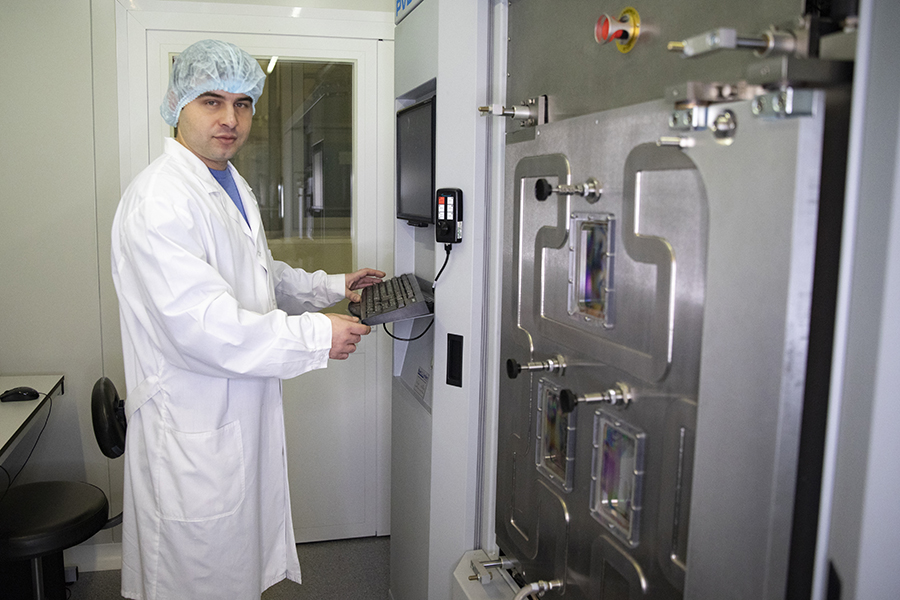
- The proposed method is based on the separation of anisotropic silicon etching into two stages (before the formation of sensitive layers – the main and after – the final), which allows to carry out all the technological stages of the manufacture of sensitive elements, including the formation of sensitive layers, by group methods. A big research work was carried out in the field of formation of dielectric membrane films, scientist investigated the influence of high-temperature annealing on the characteristics of films and the resistance of membrane films to destruction and deformation during heating. The elemental composition of the membrane film coordinated by the coefficients of linear thermal expansion with silicon is revealed. This made it possible to apply high-temperature annealing of sensitive layers in the process of their formation. The research included a study of the resistance to etching of the membrane film of revealed composition and choice of a solution which doesn’t poison the film during prolonged exposure. The scientist researched the modes of formation of heating elements in order to reduce the drift of their resistance during operation. The combination of the developed technology of formation of dielectric membrane structures with known technologies of group formation of sensitive layers was performed. As a result, Denis Veselov obtained a completely group technology for manufacturing semiconductor metal-oxide sensing elements based on dielectric membrane structures for gas concentration sensors.





